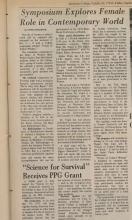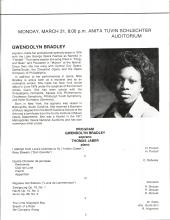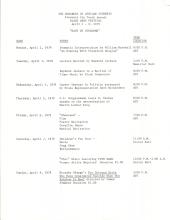College Explores Female Role in Contemporary World
During the weekend of October 5-8th of 1972, a College symposium entitle "Voices of Today's Woman" took place. The committee composed of the Dean of Women Mary Watson Carson, Pam McFarland, who was a graduate intern at the College, and a group of women students planned a diverse program consisting of a play, panel discussions, guest speakers and get-togethers.




